
Editorial
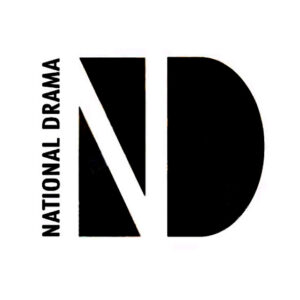
Volume 13 Editorial
First of all, let me welcome you to the new look Drama Research. National Drama, the professional association for teachers of Drama and Theatre, has invested in a brand new website and Drama Research has benefitted from this upgrade. We have attempted to make the journal as accessible and approachable as possible and so we

Volume 13 Editorial
First of all, let me welcome you to the new look Drama Research. National Drama, the professional association for teachers of Drama and Theatre, has invested in a brand new website and Drama Research has benefitted from this upgrade. We have attempted to make the journal as accessible and approachable as possible and so we
Articles
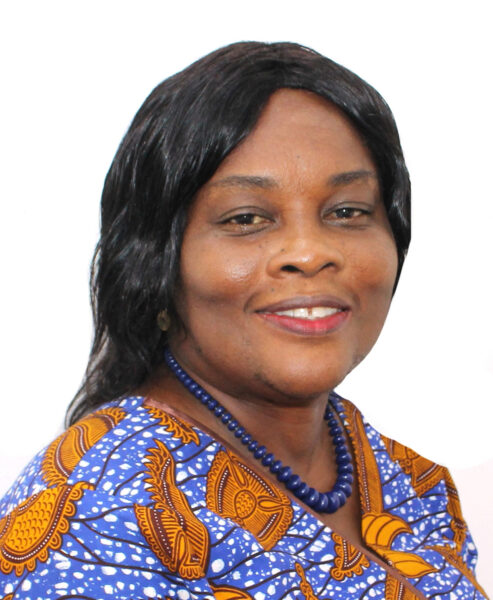
Create to Learn: an Experimentation of Drama Pedagogy in the Ghanaian Classroom
This article expounds on an experimentation of an educational drama model to aid teachers working in an unfavourable physical environment for play-based learning and do not have any substantial training in the use of drama pedagogy.

Ethics and Research-Based Theatre: Reflections from Two Practitioners
This article examines ethical tensions and entanglements that arise when working as a volunteer and professional director outside of the academy with multiple stakeholders including teachers, university students, young carers, a playwright, youth arts organisation and social services.

Intergenerational Collaborative Digital Applied Theatre Practice: Empathy and Connection in a time of Social Isolation for NHS Patients undergoing Dialysis and Secondary School Students in North London
The past two years have been incredibly difficult for communities worldwide. We have seen devastating losses, heightened inequality, and exposure of ageism and poor care that has illustrated the urgent need for change in our world.

Of Valets or Clowns? the adaptation process of Molière’s Don Juan for Young People
This article describes and reflects on the process of adapting and translating a classic theatre text, Don Juan by Molière, into a twenty minute performance in Maltese to be performed by a class of eleven-year-old students.

The Art of Wellbeing through Drama & Theatre Education
This article will attempt to clarify the meaning of wellbeing by examining its context and evolution into educational theory, from its philosophical origins to its current place in modern psychology.

The Role of Register: Register Theory and its Consideration in Theatrical Performance
This article looks at the application of register theory in the theatrical context and as a potential educational approach in pedagogic drama. Although registers have been studied in a variety of social and literary contexts, relatively little has been written on their function within performance.

Create to Learn: an Experimentation of Drama Pedagogy in the Ghanaian Classroom
This article expounds on an experimentation of an educational drama model to aid teachers working in an unfavourable physical environment for play-based learning and do not have any substantial training in the use of drama pedagogy.

Ethics and Research-Based Theatre: Reflections from Two Practitioners
This article examines ethical tensions and entanglements that arise when working as a volunteer and professional director outside of the academy with multiple stakeholders including teachers, university students, young carers, a playwright, youth arts organisation and social services.

Intergenerational Collaborative Digital Applied Theatre Practice: Empathy and Connection in a time of Social Isolation for NHS Patients undergoing Dialysis and Secondary School Students in North London
The past two years have been incredibly difficult for communities worldwide. We have seen devastating losses, heightened inequality, and exposure of ageism and poor care that has illustrated the urgent need for change in our world.

Of Valets or Clowns? the adaptation process of Molière’s Don Juan for Young People
This article describes and reflects on the process of adapting and translating a classic theatre text, Don Juan by Molière, into a twenty minute performance in Maltese to be performed by a class of eleven-year-old students.

The Art of Wellbeing through Drama & Theatre Education
This article will attempt to clarify the meaning of wellbeing by examining its context and evolution into educational theory, from its philosophical origins to its current place in modern psychology.

The Role of Register: Register Theory and its Consideration in Theatrical Performance
This article looks at the application of register theory in the theatrical context and as a potential educational approach in pedagogic drama. Although registers have been studied in a variety of social and literary contexts, relatively little has been written on their function within performance.
Book Reviews
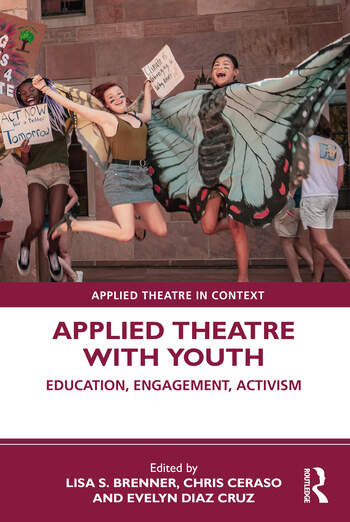
Applied Theatre with Youth: Education, Engagement, Activism
Applied Theatre with Youth is a collection of essays that highlight the value and efficacy of applied theatre with young people in a broad range of settings, addressing challenges and offering concrete solutions.
This book tackles the vital issues of our time—including, among others, racism, climate crisis, gun violence, immigration, and gender—fostering dialogue, promoting education, and inciting social change.
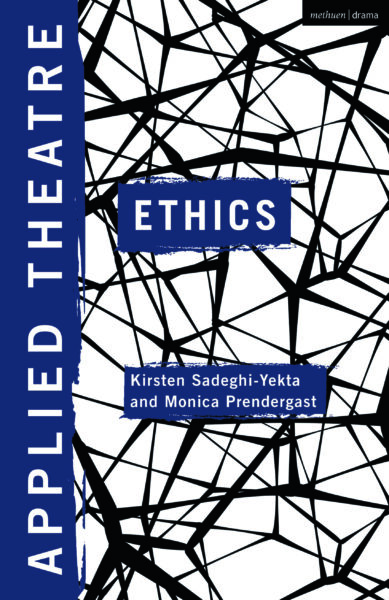
Applied Theatre: Ethics
Applied Theatre: Ethics explores what it means for applied theatre practice to be conducted in an ethical way and examines how this affects the work done with communities and participants. It considers how practitioners can balance aesthetics and ethics when creating performance, particularly with relatively inexperienced and often vulnerable groups of people who are being asked to both tell and stage their stories. The two sections bring together theoretical and practical ways for theatre-makers to examine the ethics of their applied theatre projects.
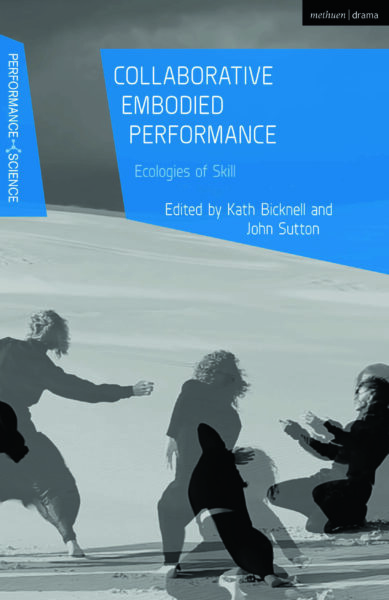
Collaborative Embodied Performance: Ecologies of Skill
This book is about joint intelligence in action. It brings together scholarship in performance studies, cognitive science, sociology, literature, anthropology, psychology, architecture, philosophy and sport science to ask how tightly knit collaboration works. Contributors apply innovative methodologies to detailed case studies of martial arts, social interaction, freediving, site-specific artworks, Body Weather, human-AI music composition, Front-of-House at Shakespeare’s Globe, acrobatics and failing at handstands. In each investigation, performance and theory are mutually revealing, informative and captivating.
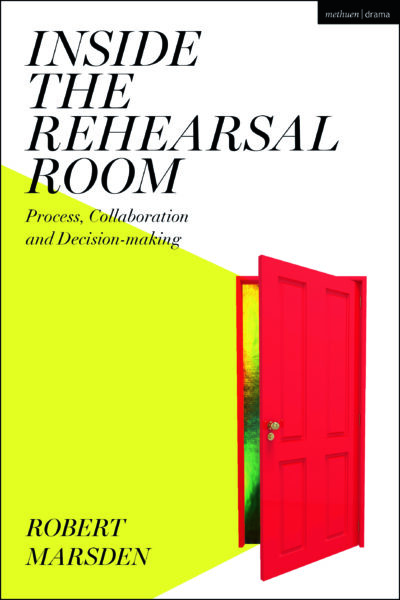
Inside the Rehearsal Room
With an exclusive focus on text-based theatre-making, Inside the Rehearsal Room is both an instructional and conceptual examination of the rehearsal process. Drawing on professional practice and underpinned by theory, this book moves through each stage of rehearsals, considering the inter-connectivity between the actor, director, designers and the backstage team, and how the cumulative effect of the weeks in rehearsal influences the final production.
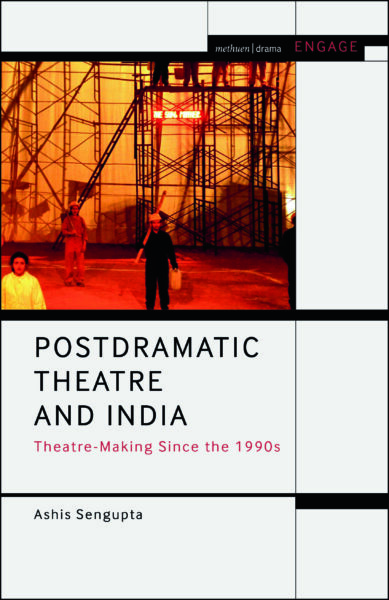
Postdramatic Theatre in India
This book revisits Hans-Thies Lehmann’s theory of the postdramatic and participates in the ongoing debate on the theatre paradigm by placing contemporary Indian performance within it. None of the Indian theatre-makers under study built their works directly on the Euro-American model of postdramatic theatre, but many have used its vocabulary and apparatus in innovative, transnational ways. Their principal aim was to invigorate the language of Indian urban theatre, which had turned stale under the stronghold of realism inherited from colonial stage practice after independence.
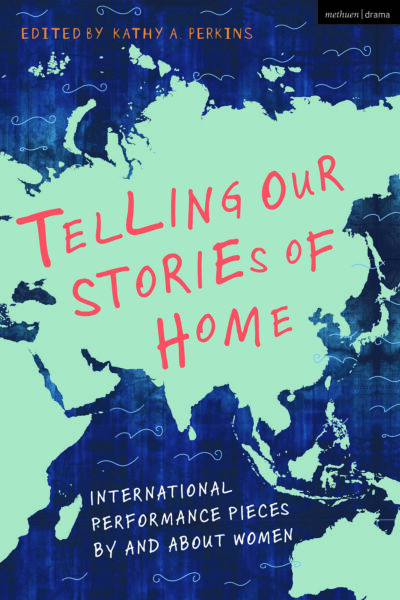
Telling our Stories of Home
What is home? The answer seems obvious. But Telling Our Stories of Home, an international collection of eleven plays by and about women from Lebanon, Haiti, Venezuela, Uganda, Palestine, Brazil, India, UK, and the US, complicates the answer.
These are voices seldom represented to a larger audience. The plays and performance pieces include a mix of monologue, duologue, and ensemble plays, allowing fantastic performance opportunities particularly in an age of social-distancing with flexible casts that together invite the theme of home to be performed and studied on the page.
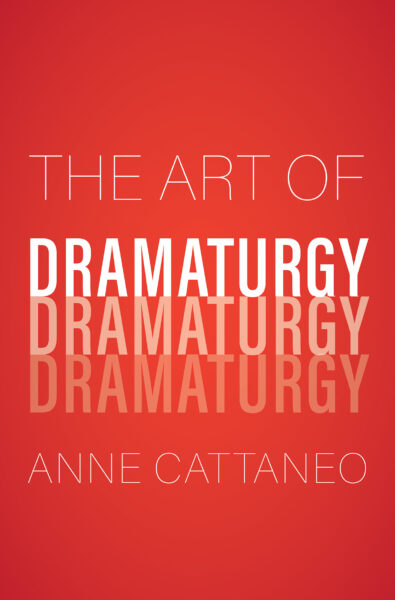
The Art of Dramaturgy
Anne Cattaneo was among the first Americans to fill the role of dramaturg, one of theatre’s best kept secrets. A combination of theatre artist, scholar, researcher, play advocate, editor, and writer’s friend, it is the job of a dramaturg to ‘reflect light back on the elements that are already in play,’ while bringing a work of theatre to life. Cattaneo traces the field from its beginnings in the eighteenth century to the present and chronicles the multitude and variety of tasks a dramaturg undertakes before, during, and after a production is brought to the stage.
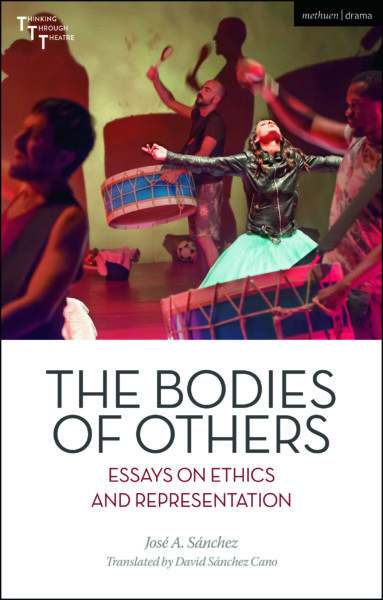
The Bodies of Others
The Bodies of Others investigates, through a series of close readings of several theatrical and film productions in Europe and South America, the relationship between ‘representation’ (including theatrical representation) and ethics (defined as an ongoing relational negotiation, as opposed to a set of universal moral laws). The main concepts are exposed through a comparative analysis of historical processes, political actions and artistic works from different periods.
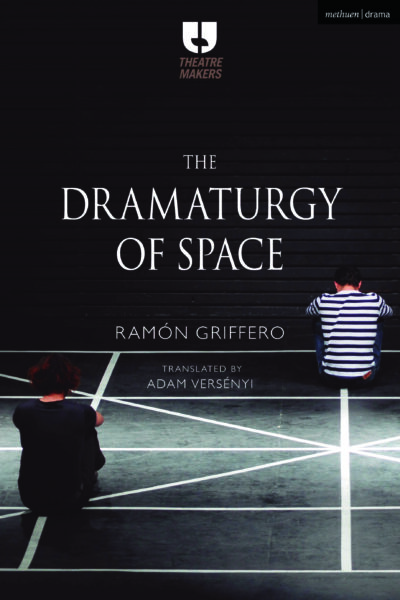
The Dramaturgy of Space
In Ramón Griffero’s seminal work, The Dramaturgy of Space, the playwright and director describes his aesthetic philosophy and theoretical approach to theatrical creation, illustrating his theory through practical application in a series of exercises. His book also reinforces the practicality of Griffero’s concepts through a series of online videos, breaking down each exercise and allowing readers to engage with the effects of his celebrated approach.
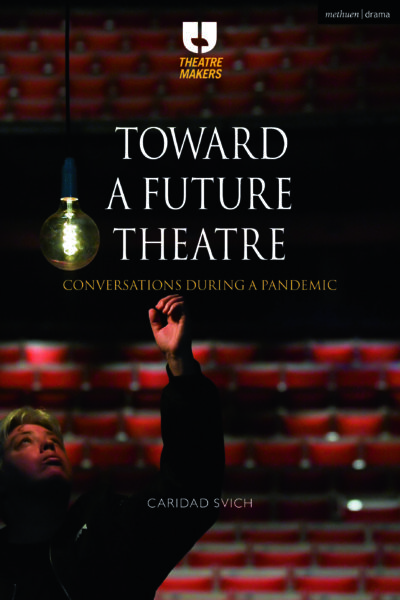
Toward a Future Theatre: Conversations during a Pandemic
Featuring conversations with theatre makers in the US and UK during the first 8 months of the Covid-19 lockdown, this collection reveals the innovations in digital theatre as artists, companies and theatres had to adjust to the restrictions and formulate new ways of working and reaching audiences. Besides documenting in their own words the work that was generated, this book captures the artists’ dreams for a new post-Covid reality in which theatre is reimagined and issues of racial and economic injustice are addressed.

Applied Theatre with Youth: Education, Engagement, Activism
Applied Theatre with Youth is a collection of essays that highlight the value and efficacy of applied theatre with young people in a broad range of settings, addressing challenges and offering concrete solutions.
This book tackles the vital issues of our time—including, among others, racism, climate crisis, gun violence, immigration, and gender—fostering dialogue, promoting education, and inciting social change.

Applied Theatre: Ethics
Applied Theatre: Ethics explores what it means for applied theatre practice to be conducted in an ethical way and examines how this affects the work done with communities and participants. It considers how practitioners can balance aesthetics and ethics when creating performance, particularly with relatively inexperienced and often vulnerable groups of people who are being asked to both tell and stage their stories. The two sections bring together theoretical and practical ways for theatre-makers to examine the ethics of their applied theatre projects.

Collaborative Embodied Performance: Ecologies of Skill
This book is about joint intelligence in action. It brings together scholarship in performance studies, cognitive science, sociology, literature, anthropology, psychology, architecture, philosophy and sport science to ask how tightly knit collaboration works. Contributors apply innovative methodologies to detailed case studies of martial arts, social interaction, freediving, site-specific artworks, Body Weather, human-AI music composition, Front-of-House at Shakespeare’s Globe, acrobatics and failing at handstands. In each investigation, performance and theory are mutually revealing, informative and captivating.

Inside the Rehearsal Room
With an exclusive focus on text-based theatre-making, Inside the Rehearsal Room is both an instructional and conceptual examination of the rehearsal process. Drawing on professional practice and underpinned by theory, this book moves through each stage of rehearsals, considering the inter-connectivity between the actor, director, designers and the backstage team, and how the cumulative effect of the weeks in rehearsal influences the final production.

Postdramatic Theatre in India
This book revisits Hans-Thies Lehmann’s theory of the postdramatic and participates in the ongoing debate on the theatre paradigm by placing contemporary Indian performance within it. None of the Indian theatre-makers under study built their works directly on the Euro-American model of postdramatic theatre, but many have used its vocabulary and apparatus in innovative, transnational ways. Their principal aim was to invigorate the language of Indian urban theatre, which had turned stale under the stronghold of realism inherited from colonial stage practice after independence.

Telling our Stories of Home
What is home? The answer seems obvious. But Telling Our Stories of Home, an international collection of eleven plays by and about women from Lebanon, Haiti, Venezuela, Uganda, Palestine, Brazil, India, UK, and the US, complicates the answer.
These are voices seldom represented to a larger audience. The plays and performance pieces include a mix of monologue, duologue, and ensemble plays, allowing fantastic performance opportunities particularly in an age of social-distancing with flexible casts that together invite the theme of home to be performed and studied on the page.

The Art of Dramaturgy
Anne Cattaneo was among the first Americans to fill the role of dramaturg, one of theatre’s best kept secrets. A combination of theatre artist, scholar, researcher, play advocate, editor, and writer’s friend, it is the job of a dramaturg to ‘reflect light back on the elements that are already in play,’ while bringing a work of theatre to life. Cattaneo traces the field from its beginnings in the eighteenth century to the present and chronicles the multitude and variety of tasks a dramaturg undertakes before, during, and after a production is brought to the stage.

The Bodies of Others
The Bodies of Others investigates, through a series of close readings of several theatrical and film productions in Europe and South America, the relationship between ‘representation’ (including theatrical representation) and ethics (defined as an ongoing relational negotiation, as opposed to a set of universal moral laws). The main concepts are exposed through a comparative analysis of historical processes, political actions and artistic works from different periods.

The Dramaturgy of Space
In Ramón Griffero’s seminal work, The Dramaturgy of Space, the playwright and director describes his aesthetic philosophy and theoretical approach to theatrical creation, illustrating his theory through practical application in a series of exercises. His book also reinforces the practicality of Griffero’s concepts through a series of online videos, breaking down each exercise and allowing readers to engage with the effects of his celebrated approach.

Toward a Future Theatre: Conversations during a Pandemic
Featuring conversations with theatre makers in the US and UK during the first 8 months of the Covid-19 lockdown, this collection reveals the innovations in digital theatre as artists, companies and theatres had to adjust to the restrictions and formulate new ways of working and reaching audiences. Besides documenting in their own words the work that was generated, this book captures the artists’ dreams for a new post-Covid reality in which theatre is reimagined and issues of racial and economic injustice are addressed.
Editorial Board
Notes on Authors

Volume 13 Notes on Authors
Our authors for this volume are: Nicola Abraham, Taiwo Afolabi, Faustina Brew, James Clarke, Isabelle Gatt, Rachel Hudspith, Jemma Llewellyn, Sofia Martyn and Andrew Novell.

Volume 13 Notes on Authors
Our authors for this volume are: Nicola Abraham, Taiwo Afolabi, Faustina Brew, James Clarke, Isabelle Gatt, Rachel Hudspith, Jemma Llewellyn, Sofia Martyn and Andrew Novell.
Table of Contents

